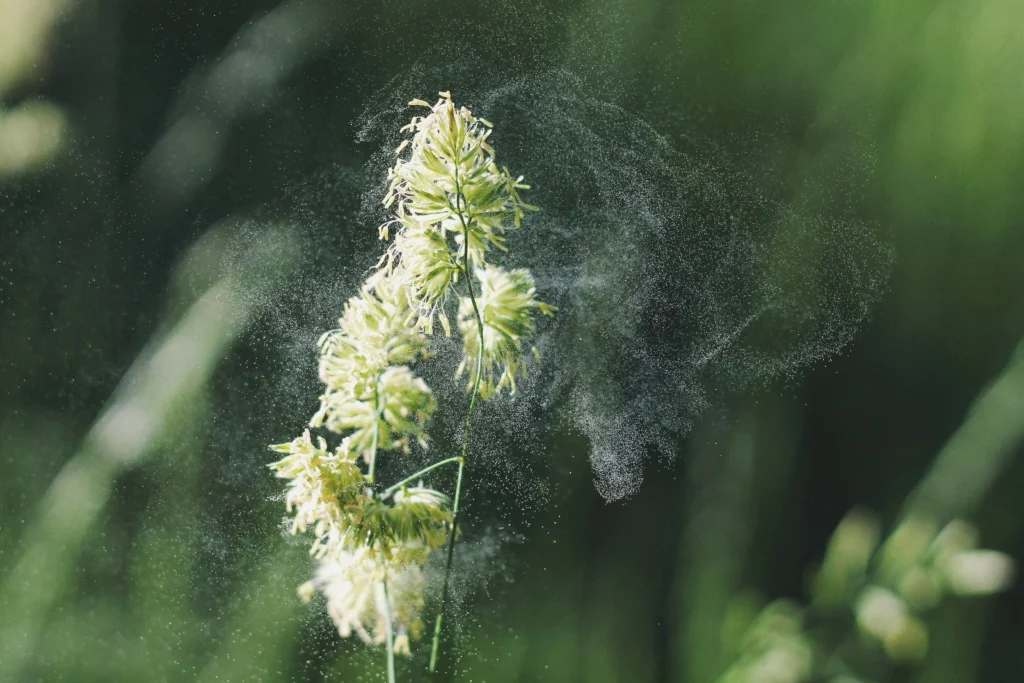The Best Time to Open Windows During Allergy Season
Are you tired of missing out on the wonderful fresh air because of pesky allergens? Ever wondered if there’s a trick to letting the breeze in without inviting in your allergy triggers? Well, in this blog post, we’ll teach you the best time to open windows during allergy season, so you can savor the breeze without the sneezes and sniffles.
Understanding Allergy Seasons
Understanding the ebb and flow of allergy seasons can be your secret weapon in the battle against the sniffles. Let’s break it down.
Spring Allergies
As trees and flowers burst into bloom, they release pollen into the air by the bucket full. Depending on your location, tree pollen typically kicks off the season in late February or early March. Grass pollen joins the party in late spring, creating a one-two punch that can leave allergy sufferers reeling.
Spring allergies in Texas typically start earlier than in many other parts of the United States due to the state’s warmer climate, ranging from around February to March.
Fall Allergies
Just when you think you’re in the clear, fall can swoop in with its own brand of allergy mayhem! The main culprit is ragweed. Ragweed starts releasing pollen in August and can continue well into October. Along with ragweed, as leaves fall and decay, mold spores take to the air, causing problems for those sensitive to them.
Fall allergies tend to be less intense than their spring counterparts, but they can still pack a punch. And here’s a fun fact: ragweed pollen can travel hundreds of miles on the wind. So even if you don’t have any growing near you, you’re not necessarily safe from its effects.
Common Allergens and Their Peak Times
Understanding the best time to open windows during allergy season is a powerful tool in managing your allergies effectively. Understanding what’s in the air and when can help you make informed decisions about when to open those windows.
Pollen Types and Timing
Pollen comes in three main flavors: tree, grass, and weed. Each has its own season and peak times:
- Tree pollen: Peaks in early spring (February to May)
- Grass pollen: Peaks in late spring and early summer (May to July)
- Weed pollen: Peaks in late summer and fall (August to October)
Pollen levels fluctuate throughout the day. They’re typically highest in the morning and on warm, dry, breezy days. Rainy or cloudy days tend to keep pollen counts lower.
Looking for regular window cleaning without worry? Explore Geek Window Cleaning’s ACP program for ongoing window maintenance!
Mold Spores
Mold is the year-round troublemaker of the allergy world. It thrives in damp, humid conditions and can be found both indoors and outdoors. Outdoor mold spore levels tend to peak in late summer and fall, especially during periods of wet weather.
Indoors, mold can be a problem any time of year, particularly in bathrooms, kitchens, and basements. Keeping your home dry and well-ventilated is key to preventing indoor mold growth.
Dust Mites
These microscopic critters are the bane of many allergy sufferers’ existence. They love warm, humid environments and feed on dead skin cells. Dust mites are present year-round but tend to be most active in warmer months.
Try to keep your home’s humidity below 50% to discourage dust mite growth. And while opening windows can help reduce humidity, it’s a balancing act — you don’t want to let in too many outdoor allergens in the process.
Animal Dander
If you’re allergic to pets, you know that animal dander is a year-round issue. But even if you don’t have pets, you’re not off the hook. Animal dander can hitch a ride on clothing and find its way into your home.
When it comes to opening windows, pet allergies are less of a concern than outdoor allergens. However, if you live in an apartment building or close to neighbors with pets, you might want to be cautious about open windows during high-traffic times when people are coming and going with their furry friends.
The Best Time to Open Windows During Allergy Season
Armed with knowledge about allergens, let’s discuss strategies for identifying the best time to open windows during allergy season.
Early Morning vs. Late Evening
Understanding peak pollen hours, which typically occur between 5 and 10 am can help you avoid opening windows during times of highest allergen concentration.
This can vary depending on your specific allergens and local conditions. For example, if you’re allergic to ragweed, its pollen levels actually peak in the middle of the day. So in this case, early morning or late evening would both be better options.
After Rain Showers
There’s nothing quite like the fresh smell after a good rain. For allergy sufferers especially, it can be a golden opportunity to open those windows.
Rain washes pollen and other allergens out of the air, leaving it cleaner and easier to breathe. The best time to open windows is about an hour after a rainstorm ends. This gives time for any stirred-up allergens to settle.
Beware the false friend that is a thunderstorm. While they might seem like they’d clear the air, thunderstorms can actually increase pollen and mold spore levels. The strong winds can stir up allergens, and the humidity can cause pollen grains to burst, releasing smaller particles that are easier to inhale.
When to Keep Windows Closed
While fresh air is beneficial, knowing when not to open windows is just as important as identifying the best time to open windows during allergy season.
High Pollen Count Days
When pollen counts soar, it’s time to close up shop. But how do you know when pollen counts are high? Pollen count monitoring through specialized apps and websites can provide valuable data to help you make informed decisions about when to open your windows.
On high pollen days, you should keep those windows closed and rely on your HVAC system or air purifiers to keep your air fresh. If you absolutely must open a window, try to do it in the evening when pollen counts are typically lower.
Windy Conditions
Strong breezes can pick up pollen and other allergens and carry them for miles. On windy days, it’s best to keep your windows closed, even if pollen counts are relatively low.
If you’re not sure how windy it is, check your local weather report or step outside for a moment. If you see trees swaying or feel a strong breeze on your face, it’s probably best to keep the windows closed. Upper-level winds can carry allergens long distances, so even if it seems calm where you are, there might be a lot of pollen in the air.
Knowing the Air Quality Index (AQI) Guidelines
The Air Quality Index (AQI) serves as a crucial indicator of overall air quality, helping you determine when it’s safe to ventilate your home. This tool, provided by the Environmental Protection Agency (EPA), measures five major air pollutants: ground-level ozone, particle pollution, carbon monoxide, sulfur dioxide, and nitrogen dioxide.
While the AQI doesn’t directly measure pollen or other allergens, it can give you a good idea of overall air quality. On days when the AQI is high (over 100), it’s best to keep your windows closed, regardless of pollen counts.
You can find your local AQI on websites like AirNow.gov or through many weather apps. Some general guidelines:
- Good (0-50): Open those windows!
- Moderate (51-100): Use caution if you’re sensitive to air pollution
- Unhealthy for Sensitive Groups (101-150): Keep windows closed if you have allergies or respiratory issues
- Unhealthy (151-200): Keep windows closed
- Very Unhealthy (201-300): Keep windows closed and limit outdoor activities
Alternative Ventilation Methods
Maintaining good indoor air quality is essential for allergy sufferers, often requiring a balance between ventilation and allergen exclusion. But that doesn’t mean you have to suffer in stale air. There are several alternatives to keep your indoor air fresh and allergen-free.
Air Purifiers
HEPA air purifiers are highly effective at removing airborne allergens, capturing 99.97% of particles as small as 0.3 microns, making them an excellent alternative when opening windows isn’t advisable.
Place your air purifier in the room where you spend the most time, like your bedroom. Run it continuously for maximum benefit. And don’t forget to change the filters regularly – a dirty filter can’t do its job effectively.
HVAC Systems with Filters
Your home’s heating, ventilation, and air conditioning (HVAC) system can be a powerful ally in the fight against allergens. Most HVAC systems have built-in filters, but not all filters are created equal.
Look for filters with a high MERV (Minimum Efficiency Reporting Value) rating. MERV ratings range from 1 to 20, with higher numbers indicating better filtration. For allergy sufferers, a filter with a MERV rating of 11 or higher is recommended.
Remember to change your HVAC filters regularly – typically every 1-3 months, depending on usage and the type of filter. A clean filter not only improves air quality but also helps your HVAC system run more efficiently.
Pollen-Blocking Window Screens
Allergy-friendly window screens offer a solution for those who want to enjoy fresh air while minimizing the entry of pollen and other allergens into their homes.
There are several types available, from simple mesh overlays to more advanced electrostatic screens. While they’re not 100% effective, they can significantly reduce the amount of pollen entering your home.
Know the Best Time of Day to Open Windows During Allergy Season: Regular Cleaning and Maintenance with Geek Window Cleaning
Keeping your windows clean is crucial in the fight against allergens! Regular cleaning removes pollen, dust, and other allergens that can accumulate on window sills and frames.
Geek Window Cleaning has a ACP Program for ongoing exterior window maintenance! Effective seasonal allergies management involves a combination of strategies, including careful timing of window opening, air filtration, regular cleaning, and having a dedicated window cleaning service to help you! Contact us today!




Recent Comments